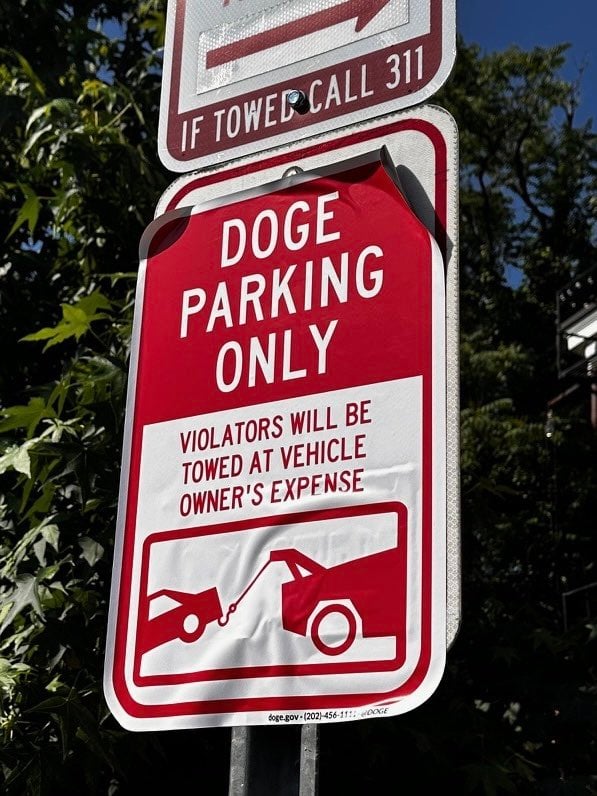Donald Trump and Elon Musk’s ongoing efforts to slash and purge the federal government already have hit federal workers and contractors hard—and everyday Americans could be next to feel the pain.
Last Thursday, the Economic Speakers Bureau brought together a group of former federal officials and experts to discuss how the impact of Trump and Musk’s so-called Department of Efficiency (DOGE) on federal agencies could in turn impact everyone else in the near and far future. Here are seven takeaways:
Paying your taxes could be more difficult—but cheating could be easier (if you’re rich)
Hate being put on hold? Good luck during this year’s tax season, said Vanessa Williamson, a senior fellow at Brookings’ Tax Policy Center. Williamson said the planned layoffs of 6,000 Internal Revenue Service employees mid-tax season could cause severe customer service delays and affect enforcement—just as IRS understaffing did in the 2010s. “We can expect Americans to experience a return to slower refunds, to longer waits on hold, to dropped calls,” she said. “It’s going to be a real impact on customer service right as taxes are due this year.”
Williamson added that “if you starve the IRS, you’re going to be providing a feast to tax evaders.” And not just any tax evaders: an underpaid and understaffed IRS, she said, will make it much easier for wealthy taxpayers to underreport their incomes, because the agency won’t have the resources to challenge them and their expensive lawyers in court. Williamson said that this ultimately will produce a reduction in overall federal revenue.
The effects and spread of bird flu may get worse
Alex Jacquez, who previously worked for the Department of Agriculture, described Musk and DOGE’s efforts as “indiscriminate” and expressed concern over cuts affecting USDA food and safety experts and the grants that help them work. “Think about the implications of firing the scientists that are working on avian flu, firing meat inspectors who are making sure that our food is safe,” he said.
The USDA made headlines this week for trying to reverse course on the firings of several bird flu response officials that were part of mass layoffs. American consumers have already seen the effects of bird flu in grocery stores on products like eggs and raw milk; according to Jacquez, a lack of regulatory oversight in agriculture, especially during the bird flu outbreak, means “real people are going to start feeling these impacts every single day.”
Renting could get more expensive—and affordable rentals could be even harder to find
For many starting salary and minimum wage workers, the rental housing market can feel difficult and punitive. This may only get worse, said Daniel Hornung, who oversaw housing policy across the Biden Administration. Hornung cited reports that DOGE is considering cutting 40 to 50 percent of workers at the Federal Housing Administration—an agency that helps lower- and middle-income renters by lowering financing costs for apartment owners and developers, who in turn can pass those savings in the form of more affordable rents.
“If the layoffs that are reported go forward at FHA, what we will see is a significant slowdown in their ability to underwrite loans, to evaluate projects,” Hornung said. In he capital-intensive housing sector, he explained, delays in project timing can cause investors and developers to pull out of slow-moving developments: “If these projects take longer and longer to get done, many of them just won’t happen at all, and we’ll see our housing supply challenges and our housing affordability challenges just get worse for folks around the country.”
For homeowners, getting new loans and mortgage refinancing could be much more challenging
Hornung said that DOGE’s intended FHA staffing cuts could also impact homeowners. Currently, he said, the FHA enables 800,000 new homeowners per year to take out a mortgage with more affordable down payments. “If the current administration carries through with the layoffs that are reported, it would likely make it harder or even impossible for some borrowers to get these low-cost mortgages, because the layoffs would dissipate FHA’s ability to quickly work with servicers and originators to approve new loans,” Hornung said.
Should interest rates decrease in the future, Hornung added, homeowners wishing to refinance their mortgages may face similar issues with “a severe slowdown or massive delays in getting those refinancings done.”
Progress toward cures for diseases like Alzheimer’s could slow significantly
According to a Reuters report, the Trump administration has terminated more than 1,100 employees from the National Institutes of Health. “Trump is illegally firing a bunch of NIH researchers—cancer researchers, drug researchers, Alzheimer’s researchers,” said former Biden administration official Bobby Kogan. “It hurts people in the near term, but it also hurts people in the long-term as we just don’t have a lot of the cures that we would have otherwise had.”
To illustrate, Kogan cited Alzheimer’s research. “We know that Alzheimer’s researchers were let go, and we are legitimately making progress in Alzheimer’s,” he said. “When you are losing the people who have dedicated their whole lives or careers to this, and you try to replace them with other workers, it’s the sort of thing where there is actual, real knowledge loss you’re not able to replicate.”
Credit card fees could become more common and more expensive
Graham Steele, a financial regulations expert who worked for the Treasury Department, discussed Trump and DOGE’s plans to halt the consumer protection work of the Consumer Financial Protection Bureau. By neutering the CFPB, he said, “the CFPB rule to limit credit card penalty fees, bringing them from $32 down to $8 per fee, is currently hanging in limbo.” Steele warned that if the purge of CFPB is ultimately successful, “many Americans may one day find their bank accounts emptied with nowhere to turn to for help.”
Your electric bill could go up, too
According to Kate Gordon, former senior advisor to the Secretary of Energy, DOGE-led layoffs of engineers, scientists, and project developers within the Department of Energy “is going to create delays in project development and energy, just as we’re looking at potentially up to a four percent [increase in] energy demand across the country”—which in turn could raise energy costs for homeowners, renters, and business owners.



















